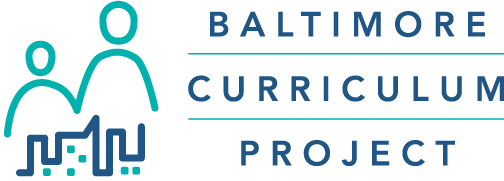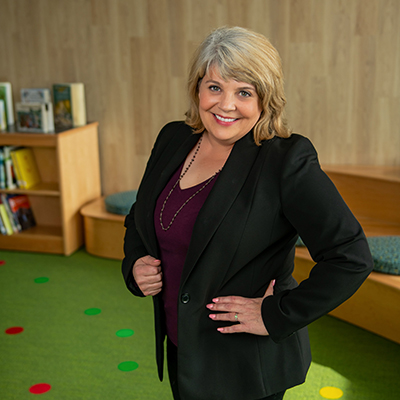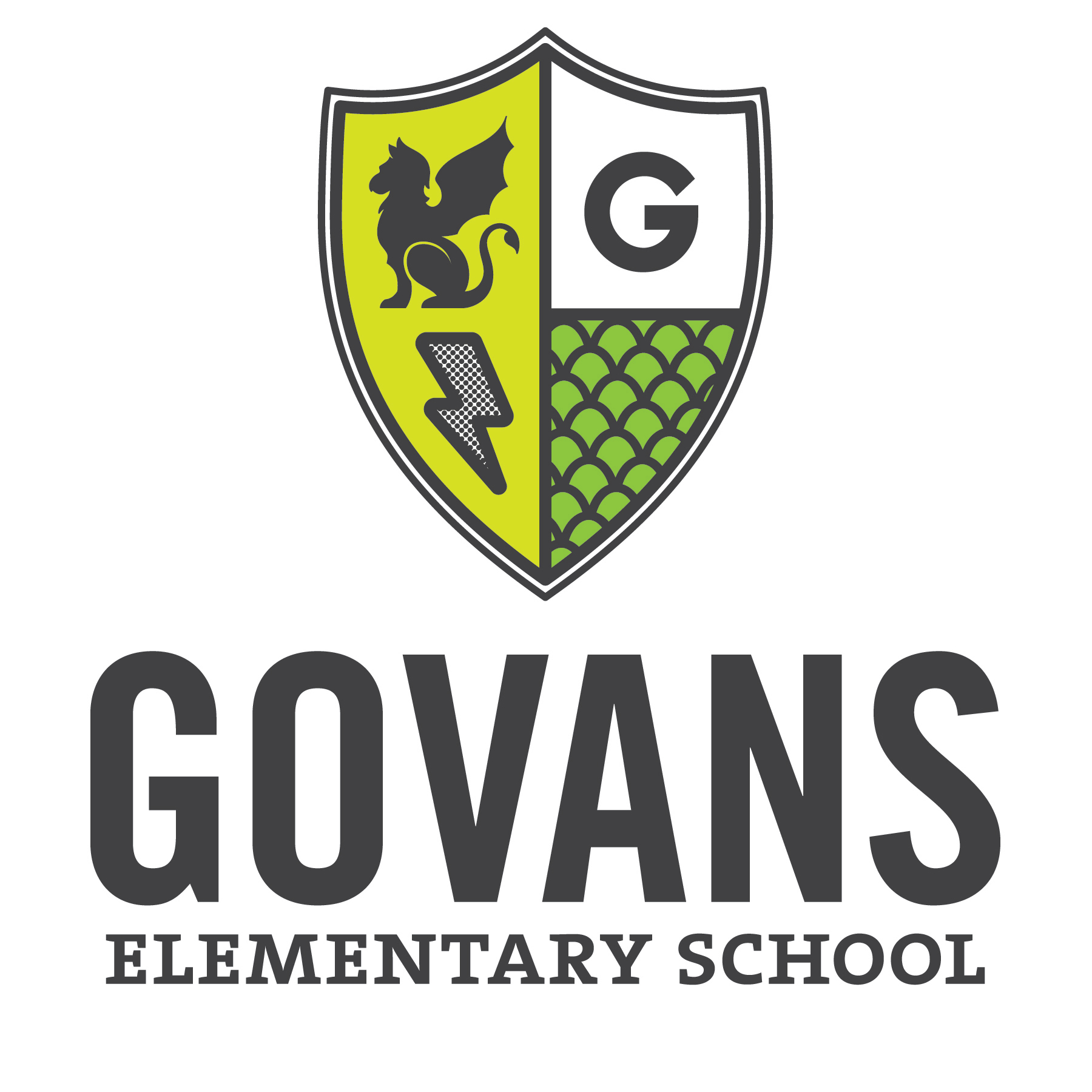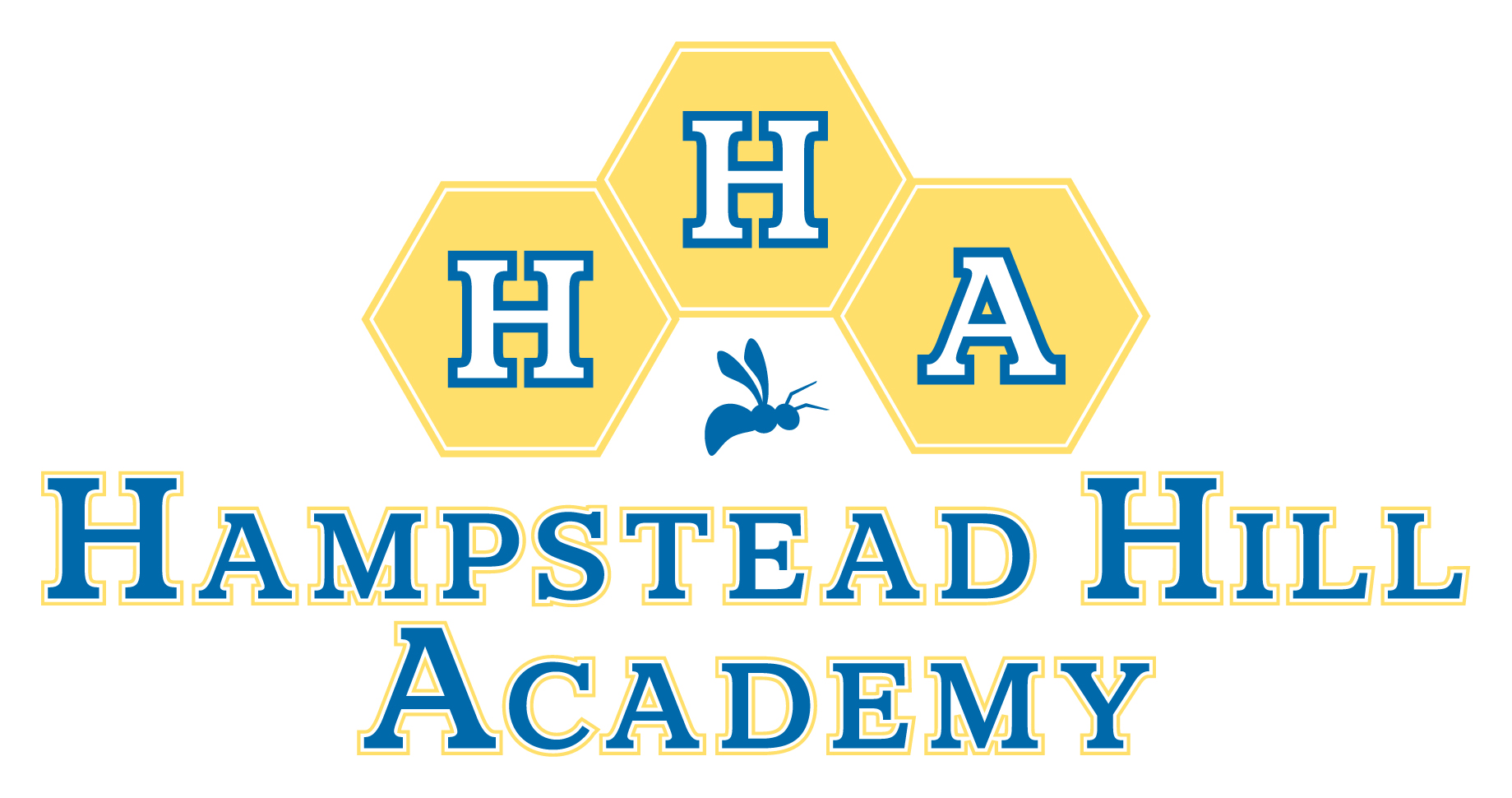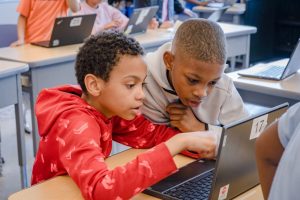 Use it or lose it. As adults, we understand that if we don’t practice our skills, we can soon forget the knowledge we’ve worked so hard for.
Use it or lose it. As adults, we understand that if we don’t practice our skills, we can soon forget the knowledge we’ve worked so hard for.
Educators face this each year with “summer slide” or “summer slump,” which are the common terms for the student learning loss that occurs during the summer each year. Summer is when learning slows, and students lose some of the information and skills they gained over the year.
The Reality of Summer Slide on Student Achievement
Summer slump and its cumulative effect have been an area of concern for many years. A recent study by the Northwest Evaluation Association (NEWA), which is the national testing group we use at Baltimore Curriculum Project (BCP), found that “the average student lost 17% to 34% of the prior year’s learning gains during summer break.” That’s more than a full month of instruction lost over the summer.
Research also shows that learning loss during the summer does not correlate to socioeconomic level or race. Meaning, no matter who your child is, that child is likely losing knowledge they gained during the school year.
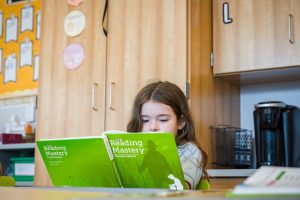 The loss also adds up. A pre-pandemic study published by deans of the nation’s leading education colleges highlights the long-term effect of knowledge loss. Over time, the summer slide is a major contributor to low reading comprehension scores in high school (source: Kappan R&D). When school resumes, two-thirds of teachers in the U.S. spend up to a month reteaching material lost during the summer (source: Expand Learning), and not all students catch up. This is a critical time that could be spent on learning new material.
The loss also adds up. A pre-pandemic study published by deans of the nation’s leading education colleges highlights the long-term effect of knowledge loss. Over time, the summer slide is a major contributor to low reading comprehension scores in high school (source: Kappan R&D). When school resumes, two-thirds of teachers in the U.S. spend up to a month reteaching material lost during the summer (source: Expand Learning), and not all students catch up. This is a critical time that could be spent on learning new material.
Summer slide challenges are heightened now that they are compounded by COVID-19 learning loss. Many of our students began the 2022-23 school year with a pandemic-created deficit in reading and math. During the pandemic and the remote learning period, students across the country lost skills and knowledge, especially younger children. When we returned to in-person learning, educators were playing catch-up. We still are.
BCP’s Approach to Summer Slide
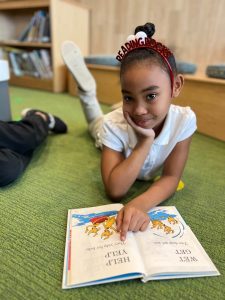
We do two key things at BCP to address summer slide for our students in PreK through 8th grade. First, before the school year ends, our teachers give out summer work to students and ideas for parents and caregivers for learning enrichment activities. Our intention is that our students are learning over the summer.
We also encourage our students to enroll in library summer reading programs and free summer programming in Baltimore City, which includes academic and arts-based programming at many local schools. (See resources below.)
When our students return in August, we do have to deal with some learning loss. This is where BCP’s holistic focus on the science of reading comes into play. Students are placed in reading and language groups at their instructional level and assessed every 5-10 days. Teachers, principals, BCP leaders, and reading coaches attentively review individual and group student performance and, where needed, conduct additional baseline assessments for each student.
Throughout the year, students are assessed every five to ten lessons and receive additional help or more challenging work based on their performance. In addition to formal reading instruction, students build academic vocabulary and language skills during science, social studies, and math.
How to Keep Your Child Learning Over the Summer
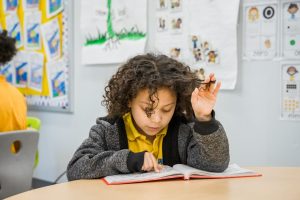 For years the common belief has been that going to the library and getting books will prevent summer learning loss. While books are important and libraries are valuable tools, studies show that just reading books isn’t enough. Reading aloud at a comfortable instructional level and talking about the books can actually increase a learner’s reading comprehension.
For years the common belief has been that going to the library and getting books will prevent summer learning loss. While books are important and libraries are valuable tools, studies show that just reading books isn’t enough. Reading aloud at a comfortable instructional level and talking about the books can actually increase a learner’s reading comprehension.
Find books that your child is interested in. A book series can keep your child turning the pages. Any reading is good reading, but learners are most likely to choose books above their instructional reading level. Finding books that engage and are still at an appropriate level is important. Librarians are a wealth of information when it comes to finding just the right book.
Use the Five Finger Reading Rule to find a book that your child can read comfortably. The Five Finger Rule is a widely used method for parents and caregivers searching for a book. From Scholastic:
Your child opens a book to the first page. They read the page and hold up one finger for every word they don’t know or can’t pronounce. The number of fingers they’re holding up by the end of the page tells them if the book is at the right level:
- 0-1 fingers: It’s too easy.
- 2-3 fingers: It’s just right.
- 4-5 fingers: It’s too hard (or best read aloud with a buddy).
Two to three fingers is the sweet spot. If they’re holding up any more or less, that’s a clue that they should try to find another book if they’re reading independently. (Here are 30+ great books for early readers to start with!)
Have your child read aloud to you. Try to set a time each day to do this. Encourage your child to read with expression. It’s fun, and a great way to connect. Reading aloud with expression improves fluency and accuracy.
When you read aloud, talk to your child about what you are reading. Ask “What did you think about that?” “What do you think will happen next?” “What is your favorite part?” Talking about the text provides context and improves comprehension.
BCP’s Focus on the Science of Reading
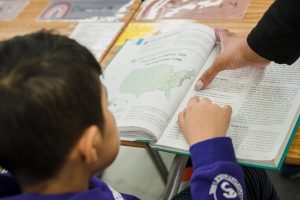 At BCP, we are working not only on teaching the students to sound out words, we’re addressing all the related skills that they need to be able to read well. The Science of Reading is a hot topic in education right now.
At BCP, we are working not only on teaching the students to sound out words, we’re addressing all the related skills that they need to be able to read well. The Science of Reading is a hot topic in education right now.
For years, American students have been taught using a “cueing system,” where they look at pictures and try to figure out what the words might be. They are told the words in a simple reader until they memorize them and can “read” them on their own. By the time students begin reading complex texts in upper elementary and middle school, they are unable to use the cues and struggle.
BCP has never used this method. We have always used science to guide our approach. We teach pre-reading skills such as rhyming and attending to sounds and the parts of a word. We teach how to sound out words so students are able to decode a word without hints or pictures. We also use the language program to help them with the vocabulary, the grammar, and how you put the words together. BCP students are getting reading instruction plus learning how language works and how to speak and write it.
Our focus is multidisciplinary, which means they are building their reading skills in science, social studies, and math classes. Academic vocabulary and background information learned throughout the day provide a frame for comprehension, while skills in fluency, grammar, and decoding allow your students to become lifelong learners.
Free Resources for Families to Help Stem Summer Slide
The Enoch Pratt Free Library and its Summer Break program.
Get Epic, which offers instant access to 40,000 books and videos for kids.
Oxford Owl, a great free e-library
Free summer family programs sponsored by Baltimore City
About Maura Farrall
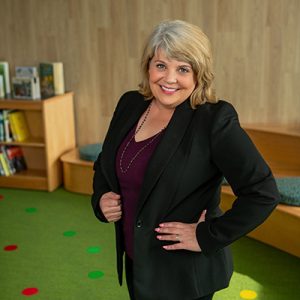
- Mother to 5 children who attended BCP schools
- Lead Academic Coach, BCP, 2021 – present
- Lead Academic Coach, Wolfe Street Academy, 2017-2021
- Teacher, Wolfe Street Academy, 1999-2016
Her favorite books as a child growing up in the mountains of Colorado? A Wrinkle in Time by Madeleine L’Engle and anything about Jane Goodall. She has fond memories of receiving books and the summer reading packet in the mail each summer from the Colorado Library system.
Read more about BCP’s unique approach to teaching and learning with Academic Coaches.
